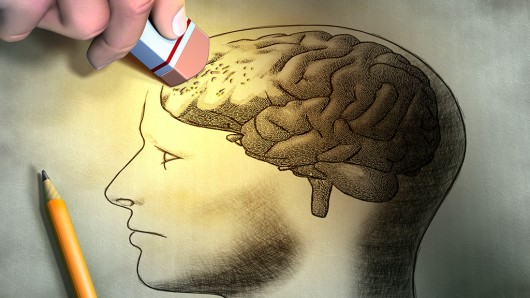
MEMORIES
By Ann Pederson
From The Way We Were, Barbra Streisand sings: “memories. . .light the corners of my mind, misty water-colored memories, of the way things were. . . .Or has time rewritten every line?” Some days it seems like time has rewritten every line of my mother’s memory. Or at least the cells in her brain, shaped by the disease of dementia, rewrite her memories, line by line, event by event. Recently, we went on one of our afternoon drives, eating ice cream and talking; she told me me that her mother had died and yes, her father had died as well. Those memories of her parents’ deaths were intensely vivid for her and it seemed as if they had just happened. Well, her mother died when I was two, and her father died when I was in college. For me, the deaths of my maternal grandparents are memories of the way things were but for my mother those memories from the past had been rewritten into present experiences. What happened decades ago was not some misty-water colored memory of the distant past but a powerful and sad event in her present reality.
This last summer I had a reunion with four of my high school friends. We gathered with each other in a cabin at the foot of the Bridger Mountains. All of us shared something in common this summer: we were either taking care of a parent with dementia or Alzheimer’s disease or we had done so very recently. We laughed and thought that our time together could have been labeled, “The Dementia Dairies.” We shared stories: one friend’s mother who had recently moved into a new assisted living center loved her new room “on the cruise ship and was so glad that the she had a ship-to-shore phone that worked so well.” Another’s mother was convinced that men were coming into her room, taking her clothes, washing them and ironing them and putting them back in the wrong order. We all wished that we had those men coming to our house. The stories made us laugh and yet underneath it all were the knowing glances we shared with each other at how painful this reality was for all of us and most of all, for our parents. Did we fear that this would also become our fate, that our memories and reality would change, that others would have to take care of us? We were deeply saddened by the ways that our parents had changed so much, sometimes to the point that we hardly knew who they were or they hardly recognized us or our lives in these present moments. Were we doing enough to help our parents, even though some of us were completely worn out from the care-taking?
What I have learned is that who my mother is today is who she is, including her disease of dementia. I do her a great disservice by trying to make her into something she is not. Yes, I mourn the loss and feel deeply saddened by her illness. But she remains my mother and I remain her daughter. At the end of our visit with my friends, we all knew that memories are shared and that we are responsible for the memories we will create with our parents. I’m strengthened most of all by knowing that it is finally not my memory nor my mother’s that holds me tight through all this loss, but it is God’s loving memory who holds all things together forever. God’s mercy is such that nothing can be lost.

This beautiful post reminds me of one of my favorite articles in Jesus, Jazz, and Buddhism. It is called Where is God in Alzheimer’s Disease, and it is written by Bruce Epperly. Bruce and others remind us that we can imagine God as the Deep Remembering in whose heart the universe lives and moves and has its being. Here’s a passage:
“God is also present in the lives of those diagnosed with Alzheimer’s. We can’t fully know what persons with Alzheimer’s experience. But, deep down, God is moving in their experiences. As the Apostle Paul says, the Spirit of God intercedes – or speaks within us – in sighs too deep for words. Could persons with Alzheimer’s experience God at a non-conscious and non-verbal level, perhaps as the mother or father who cradles us as infants or the ambient waters of the womb? Perhaps, this is God’s calling to us – to cradle and love without expectation of conscious response or reciprocity. There are times when we must simply, as caregivers, give without hope of return.
In my pastoral experience, there is a gentle faith movement in persons with Alzheimer’s not unlike the babbling of infants and toddlers that emerges as words. Persons who may not recognize their spouse, children, or pastor may still experience the grace of the Lord’s Prayer or a favorite hymn. Certain rituals may bubble up from the unconscious, inspired and inspiring a sense of wellness despite the tragic realities of Alzheimer’s. These and other remembrances invite caregivers to communicate in ways that open the channels of joy and memory.” — Bruce Epperly (http://www.jesusjazzbuddhism.org/where-is-god-in-alzheimers-disease.html)